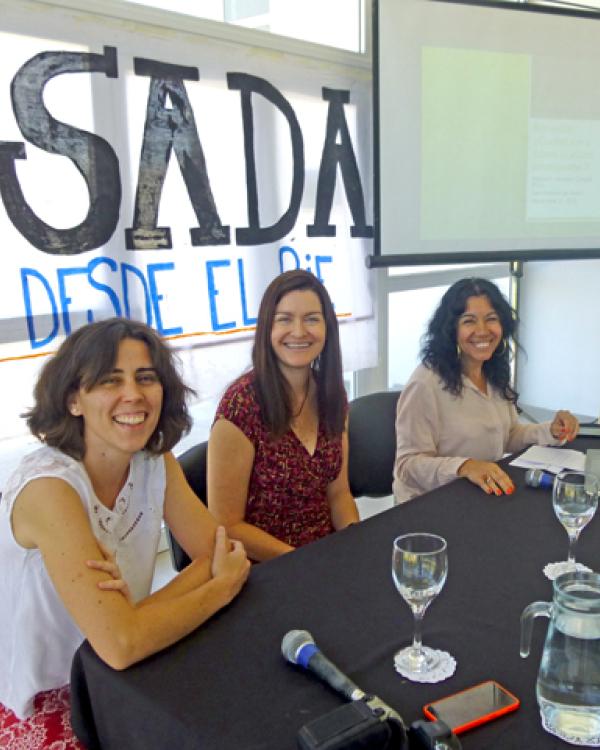
Dr. Melissa Morgan Consoli (center) speaking at Centro Universitario de Areco in San Antonio de Areco, Buenos Aires, Argentina.
Dr. Melissa Morgan Consoli of UC Santa Barbara’s Gevirtz School gave a series of invited presentations on her research regarding thriving and resilience in Latino/a populations in Argentina during her fall 2015 sabbatical. Specifically, she presented information about her investigations on factors such as familismo, spirituality, and other cultural practices that promote positive outcomes in both Latino/a immigrants and university students.
The first presentation, titled “Los Inmigrantes Latina/os en los Estados Unidos de América y su desempeño en la educación superior” (Latino/a immigrants in the U.S.A. and their Performance in Higher Education), was given at the Universidad Nacional de San Martín, Buenos Aires (UNSAM) to an audience of the School of the Humanities faculty and students. The talk was sponsored by the Instituto por la Inclusión Social y el Desarrollo Humano of CONICET (Consejo Nacional de Investigaciones Científicas y Técnicas; www.conicet.gov.ar) in Buenos Aires with the sponsorship of Dr. Ana Inés Heras – a Gevirtz School alumna – and Dr. Silvia Grinberg of the School of Education at UNSAM.
Dr. Morgan Consoli also presented her work in a talk titled “Resiliencia, Prosperidad, y Bienestar: ¿Qué son y cómo pueden promoverse?” (Resilience, Thriving and Wellbeing: What they are and how do we promote them?) at Centro Universitario de Areco in San Antonio de Areco, Buenos Aires, Argentina.
Additionally, Dr. Morgan Consoli presented her work at CONICET’s Instituto por la Inclusión Social y el Desarrollo Humano in a presentation titled “Latino/a Resiliencia y Prosperidad Linea de Research” (Latino/a Resilience and Thriving Research Line).
Melissa Morgan Consoli is an Associate Professor in the Department of Counseling, Clinical and School Psychology. All of her research is conducted through a social justice lens, using qualitative, quantitative, and mixed methods designs as well as community based research paradigms. Her goal is for research to be culturally relevant, informative in the development of prevention and other community programs, and useful in addressing societal issues of concern for the populations with whom she works.